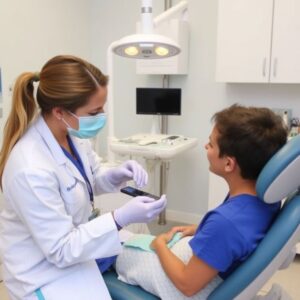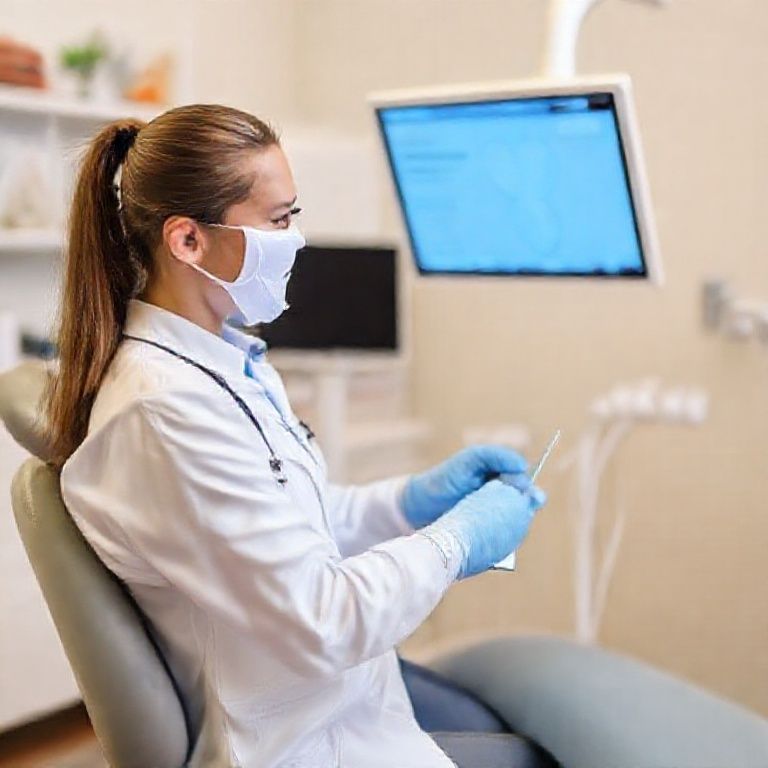Free Dental Care in Florida: Reclaiming Your Smile and Health
The Florida sun, the vibrant communities, the promise of a good life—these are the images that define the Sunshine State for millions. Yet, beneath this radiant surface, a silent epidemic affects a significant portion of the population: the crisis of dental care access. For the uninsured, the underinsured, low-income families, and seniors on fixed incomes, the high cost of a simple dental cleaning, let alone a root canal or a set of dentures, can feel like an insurmountable barrier. The consequence of this barrier is more than just a cosmetic concern; it is a profound public health issue. Untreated dental disease is linked to cardiovascular problems, uncontrolled diabetes, respiratory infections, and can severely impact an individual’s ability to secure employment, nutrition, and overall quality of life. The pain of a toothache is not just physical; it is a constant, grinding reminder of systemic inequality and the gaps in our healthcare safety net.
However, within this challenging landscape, there exists a network of hope and practical solutions. This article is not merely a list of resources; it is a detailed roadmap designed to guide you through the often-complex terrain of accessing free and low-cost dental care in Florida. We will delve deep into the various avenues available, from federally funded community health centers and university-based dental schools to large-scale charitable missions and sliding-scale fee clinics. We will demystify the eligibility requirements, provide strategic advice on how to navigate waiting lists, and empower you with the knowledge to take the first, critical step toward reclaiming your oral health. Your smile is a vital part of your well-being, and it should not be a luxury reserved for the affluent. Let this guide be your first step toward a healthier, pain-free future.
1. Understanding the Landscape: Why Dental Care is a Critical Need in Florida
Florida’s unique demographic profile plays a significant role in the high demand for affordable dental care. The state is home to one of the largest elderly populations in the nation, a group that often faces complex dental issues, from decades of wear-and-tear to medication-induced dry mouth that accelerates decay. Furthermore, a substantial segment of the workforce is employed in tourism, agriculture, and service industries—sectors where employer-sponsored dental insurance is not a standard benefit. This creates a class of the “working poor,” individuals and families whose income disqualifies them from some government assistance yet is insufficient to cover private insurance or out-of-pocket dental expenses.
Compounding this issue is Florida’s decision regarding Medicaid expansion. While Medicaid is required to provide dental benefits for children, adult dental coverage under Medicaid in Florida is extremely limited. For most adults over 21, Medicaid only covers emergency services aimed at relieving pain or infection, such as extractions. It does not typically cover preventive care like cleanings, restorative work like fillings or crowns, or rehabilitative procedures like dentures. This policy effectively creates a cycle of “crisis care,” where individuals are forced to wait until a minor, treatable problem escalates into a painful, dangerous, and costly emergency. The financial burden of this emergency care then falls on hospital emergency rooms, which are ill-equipped to provide definitive dental treatment and can often only offer antibiotics and pain medication, followed by a referral to an oral surgeon for extraction. This cycle is not only detrimental to the patient’s health but is also economically inefficient for the state’s healthcare system as a whole.

2. Government-Supported Safety Nets: Federally Qualified Health Centers (FQHCs)
For many uninsured and low-income Floridians, Federally Qualified Health Centers (FQHCs) are the most reliable and widespread source of affordable dental care. Understanding what they are and how to access them is the cornerstone of navigating the free care landscape.
What is an FQHC and How Do They Work?
FQHCs are community-based healthcare providers that receive funds from the federal government’s Health Resources & Services Administration (HRSA) to provide primary care services in underserved areas. A critical component of their mandate is to provide services to all persons, regardless of their ability to pay. They are required to operate on a sliding fee scale (SFS) that is based on a patient’s family size and income. This means that if your income falls below a certain percentage of the Federal Poverty Level (FPL), your cost for services, including dental care, can be significantly reduced, sometimes to zero.
The scope of dental services at an FQHC can vary by location and funding, but they typically aim to provide comprehensive care. This includes:
-
Preventive Care: Dental exams, cleanings (prophylaxis), fluoride treatments, and sealants.
-
Diagnostic Services: X-rays (radiographs).
-
Restorative Care: Fillings (amalgam and composite).
-
Emergency Care: Treatment for toothaches, infections, and simple extractions.
-
Some centers may also offer: Root canals on front teeth (anterior), periodontal treatment, partial dentures, and referrals for more complex procedures.
It is crucial to understand that while FQHCs are a lifeline, they often have high demand and consequently, long waiting lists for non-emergency appointments. Persistence is key.
How to Find and Access an FQHC Near You
The most direct way to find an FQHC with dental services in your area is to use the official HRSA Find a Health Center tool online. By entering your zip code, you can generate a list of nearby centers. Once you have identified a clinic, your first step should be to call them or, if possible, visit in person to inquire about their dental program. Be prepared to provide information about your household income, as they will need this to determine your eligibility for the sliding fee scale.
Table: Examples of Major FQHC Networks in Florida Offering Dental Services
| FQHC Network Name | Service Regions in Florida | Sample of Dental Services Offered | How to Inquire |
|---|---|---|---|
| Suncoast Community Health Centers | Hillsborough, Polk, Pasco counties | Exams, Cleanings, Fillings, Extractions, Dentures, Root Canals, Pediatric Dentistry | Call (813) 653-6100 or visit website for appointment scheduling. |
| Broward Community & Family Health Centers | Broward County | Preventive, Restorative, Emergency Care, Limited Oral Surgery | Requires an eligibility screening appointment first. Call (954) 966-3800. |
| Community Health of South Florida, Inc. (CHI) | South Miami-Dade, Monroe counties | Full-service dental care including cleanings, fillings, crowns, bridges, dentures, and emergency services. | Multiple dental locations. Call (305) 252-4820 for information. |
| Heart of Florida Health Center | Marion County | Exams, X-rays, Cleanings, Fillings, Extractions, Dentures, Partial Dentures. | Operates on a sliding fee scale. Call (352) 732-6599 for an appointment. |
| Agape Community Health Center | Central Florida (Orange, Osceola) | Comprehensive dental care for adults and children, including emergency services. | Sliding fee scale available. Call (407) 740-0888. |
An example of a modern, welcoming dental operatory at a community health center.
3. The Power of Education: Dental School Clinics
Florida is home to several world-class dental schools that operate teaching clinics open to the public. These clinics are an excellent option for high-quality, low-cost dental care. The primary trade-off is time; because the care is provided by dental students who are closely supervised by licensed, experienced faculty dentists, appointments can take significantly longer than at a private practice.
The University of Florida College of Dentistry (Gainesville)
As the state’s premier public dental school, UF College of Dentistry offers a wide range of dental services at a fraction of the cost of private practice. The process typically begins with a comprehensive screening appointment to assess your needs and determine if your case is suitable for the teaching clinic. Services range from routine cleanings and fillings to more complex procedures like root canals, crowns, bridges, dental implants, and periodontal (gum) treatment. The savings can be substantial, often 30-50% less than private practice fees.
Nova Southeastern University College of Dental Medicine (Fort Lauderdale)
NSU’s dental clinic provides a similar model, offering comprehensive care in a educational setting. They have multiple patient care programs, including general dentistry and various specialty clinics (orthodontics, oral surgery, endodontics, etc.). Prospective patients must undergo a screening to be accepted into the program. The facility is state-of-the-art, and the care is meticulous due to the faculty supervision and the educational process.
Lake Erie College of Osteopathic Medicine (LECOM) School of Dental Medicine (Bradenton)
LECOM’s dental school clinic is another key resource for residents of the Gulf Coast. They offer a full spectrum of dental services at reduced costs. Like its counterparts, LECOM uses a patient-centered model where students provide care under direct faculty supervision, ensuring quality and thoroughness.
How to Access Dental School Care:
-
Contact the school directly via phone or their website to inquire about becoming a new patient.
-
Be prepared for a screening process. This is not a guarantee of immediate treatment.
-
Schedule accordingly. Appointments are often longer, and the overall treatment plan may take more time to complete.
-
Embrace the educational aspect. You are contributing to the training of future dentists while receiving affordable care.
4. Missions of Mercy: Large-Scale Charitable Dental Events
For those in acute need and without other immediate options, large-scale charitable dental events provide a crucial, though temporary, solution. These events are often massive undertakings, set up in convention centers or fairgrounds, and provide free care on a first-come, first-served basis to hundreds or even thousands of people over a two-day period.
The Florida Mission of Mercy (FLMOM)
Organized by the Florida Dental Association Foundation, FLMOM is a premier charitable dental event that travels to a different city in Florida each year. It is a true “field hospital” style clinic. Services provided are typically limited to urgent and preventive care and are designed to address the most pressing needs. These include:
-
Dental cleanings
-
Fillings
-
Extractions
-
Limited treatment for dental infections
Due to the high demand, people often camp out overnight to secure a spot in line. It is a powerful, albeit short-term, response to a chronic problem.
Remote Area Medical (RAM)
While originally founded to serve remote areas overseas, RAM now holds numerous clinics across the United States, including in Florida. RAM clinics are not exclusively dental; they often provide vision and medical services alongside dental care. The model is similar to FLMOM: free care, first-come-first-served, with services focusing on extractions, fillings, and cleanings. Monitoring the RAM website for upcoming clinic dates in Florida is essential for those interested.
Patients receiving free care at a large-scale dental mission event.
5. Local Heroes: Non-Profit and Free Clinics Across Florida
Beyond the large networks and events, countless local non-profit clinics operate through the dedication of volunteers, private donations, and community grants. These clinics are the backbone of the safety net in many communities.
Region-Specific Resources: A Breakdown by Area
-
North Florida:
-
We Care Dental Clinic (Jacksonville): A renowned clinic providing free dental care to low-income, uninsured adults through a network of volunteer dentists.
-
Bread of the Healing Ministry (Tallahassee): Offers a free dental clinic on specific days, providing extractions, fillings, and cleanings.
-
-
Central Florida:
-
Grace Medical Home (Orlando): A comprehensive medical home for the uninsured that includes a full-service dental clinic. Patients must apply and be enrolled in their program.
-
St. Petersburg Free Clinic (Dental Center): Provides dental services on a sliding fee scale to low-income, uninsured Pinellas County residents.
-
-
South Florida:
-
Caridad Center (Boynton Beach): The largest free clinic in Florida, offering a wide array of medical and dental services to uninsured, low-income families.
-
Carroll’s Family Dental (Miami): A faith-based clinic that provides free dental care on specific Saturdays each month through volunteer dentists.
-
Finding these local clinics often requires more targeted online searches (e.g., “free dental clinic [Your City]”) or contacting your county’s health department or United Way by dialing 211.
6. Specialized Programs for Specific Populations
Certain groups may have access to targeted programs.
Dental Care for Children: Florida KidCare
Florida KidCare is the state’s children’s health insurance program, which includes comprehensive dental benefits through managed care plans. For eligible children, this covers regular check-ups, cleanings, fillings, orthodontic evaluations, and more. For families who may not qualify for Medicaid but still struggle with insurance costs, KidCare offers subsidized rates.
Resources for Seniors
Many counties in Florida have Area Agencies on Aging that can provide information on local resources for seniors, including dental care. Some non-profits, like Dental Lifeline Network, have programs that match vulnerable seniors and individuals with disabilities with volunteer dentists, though these programs often have waiting lists and specific criteria.
Support for Veterans
While the VA healthcare system provides dental care, eligibility is strict and often tied to service-connected disabilities. Veterans not eligible for VA dental benefits should explore the other resources listed in this article, particularly FQHCs, which serve all members of the community.
7. Navigating the System: A Practical Action Plan
Feeling overwhelmed is normal. This step-by-step plan can help you take structured action.
-
Step 1: Self-Assessment and Documentation
-
Identify Your Need: Is this a persistent pain (emergency) or a need for a cleaning/filling (routine)?
-
Gather Documents: Have proof of income (pay stubs, tax return), proof of residence (utility bill), and photo ID ready. This will speed up the eligibility process at any clinic.
-
-
Step 2: Strategic Research and Outreach
-
For Emergencies: Call local FQHCs and clearly state you have a dental emergency (severe pain, swelling, infection). They often hold slots for such cases.
-
For Routine Care: Start with the HRSA Find a Health Center tool. Make a list of 5-10 clinics within a reasonable distance.
-
Make the Calls: Be polite but persistent. Ask specific questions: “Are you accepting new dental patients?” “What is the current wait time for a cleaning?” “What documents do I need to bring for a sliding fee scale application?”
-
-
Step 3: Persistence and Follow-up
-
Get on Multiple Lists: If a clinic has a long waiting list, ask to be placed on it, and also ask if they have a cancellation list.
-
Follow Up: If you haven’t heard back in a few weeks, call again politely to check on your status.
-
Explore All Avenues: While on a waiting list, research upcoming dental missions, dental schools, and local non-profits.
-
8. Conclusion: A Smile is a Fundamental Right
Navigating the path to free dental care in Florida requires patience, persistence, and knowledge, but the resources do exist. From the widespread network of Federally Qualified Health Centers to the teaching clinics of esteemed dental schools and the remarkable generosity of charitable missions, avenues for care are available for those in need. By understanding the landscape, preparing your documentation, and strategically reaching out to these organizations, you can overcome financial barriers and take a definitive step toward not only improving your oral health but also enhancing your overall quality of life. A healthy smile is not a luxury; it is a cornerstone of your dignity and well-being.
9. Frequently Asked Questions (FAQs)
Q1: Is there really free dental care in Florida, or will I always have to pay something?
A: Truly free care, with no cost whatsoever, is primarily available through charitable events (like FLMOM or RAM) and some specific non-profit free clinics. More commonly, you will find low-cost care based on a sliding fee scale at FQHCs, where your cost is determined by your income and may be zero if you are at or below the poverty line.
Q2: I have a dental emergency right now—a swollen face and terrible pain. What should I do?
A: This is a serious medical situation. If you cannot immediately get an appointment with an FQHC or dentist, go to the nearest hospital emergency room. While they cannot perform dental procedures, they can prescribe antibiotics and pain medication to control the infection and pain until you can see a dentist. Then, immediately contact FQHCs and state clearly that you have a dental emergency.
Q3: What is the typical wait time to get an appointment for a non-emergency cleaning?
A: Wait times can vary dramatically, from a few weeks to several months, depending on the clinic’s funding and patient load. This is why it is critical to get on multiple lists and to ask about cancellation lists.
Q4: I don’t have a car. How can I find dental care if I live in a rural area?
A: This is a significant challenge. Start by calling your county health department; they may have information on mobile dental units or transportation services. Some larger FQHC networks have multiple locations and may be able to direct you to their closest site. Also, inquire with clinics about potential transportation assistance programs.
Q5: Are the services at a dental school clinic safe and effective?
A: Yes. Dental students are supervised at every step by licensed faculty dentists who are experienced clinicians. The care is often exceptionally thorough because the students are being graded and must follow precise protocols. The main difference is the time required for appointments.
10. Additional Resources and Directories
-
HRSA Find a Health Center: https://findahealthcenter.hrsa.gov/
-
Florida Dental Association Foundation (FLMOM): https://www.floridadental.org/foundation/flmom
-
Remote Area Medical (RAM): https://www.ramusa.org/
-
Florida KidCare: https://www.floridakidcare.org/
-
Dental Lifeline Network: https://dentallifeline.org/
Disclaimer: This article is for informational purposes only and does not constitute medical or financial advice. The availability, services, and eligibility requirements for the programs listed are subject to change. Please contact the organizations directly for the most current information.
Date: October 13, 2025
Author: The Health & Wellness Institute


